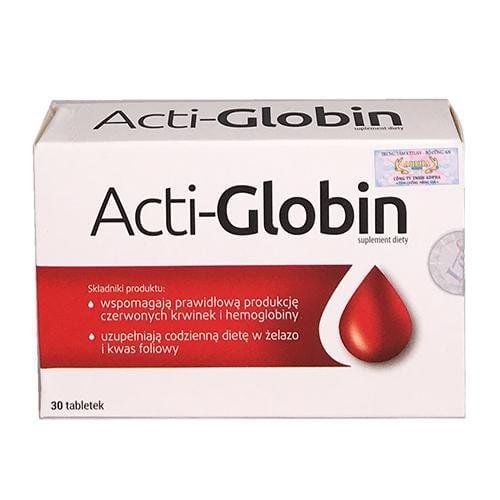This is an automatically translated article.
Vitamin C is a water-soluble nutrient with many functions in the body. It boosts the immune system, aids in collagen production, and heals wounds. Vitamin C acts as an antioxidant to protect cells from damage by free radicals. However, Vitamin C is a substance that humans cannot synthesize on their own. Therefore, to meet the recommended vitamin C requirements, it is advisable to get the vitamin from food or from supplements to maintain health.
1. The role of vitamin C in the body
Vitamin C is also known as ascorbic acid. It is essential for the growth, development and repair of all body tissues. It is involved in many bodily functions, including collagen formation, iron absorption, the immune system, wound healing, and maintenance of cartilage, bones, and teeth. Vitamin C is one of many antioxidants that can protect against damage caused by free radicals, as well as harmful chemicals or pollutants like cigarette smoke. Free radicals can build up and contribute to the development of health conditions such as cancer, heart disease, and arthritis.
Vitamin C is not stored in the body (excess will be excreted), so an overdose of vitamin C is not a cause for concern. But it's important not to exceed the safe upper limit of 2,000 milligrams per day to avoid stomach upset and diarrhea.
Water-soluble vitamins including vitamin C must be provided continuously in the diet to maintain the correct dose. Therefore, it is recommended to eat vitamin C-rich fruits and vegetables or cook vitamin C-rich foods with minimal water to avoid loss of water-soluble vitamins when cooked.
Vitamin C is easily absorbed both in food as well as in supplement form. And it also works to enhance iron absorption when both are used simultaneously.

Trái cây và rau quả giàu vitamin C
2. Health benefits of vitamin C
Vitamin C may provide health benefits to reduce symptoms such as:
Stress : A recent meta-analysis found vitamin C to be beneficial for people whose immune systems are weakened by stress - a very common condition in society. Because vitamin C is one of the stress-sensitive nutrients and the first nutrient to be deficient in alcoholics, smokers, and obese people. Colds: When it comes to the common cold, vitamin C may not be a cure-all. But some research suggests it may help prevent more serious complications. There is evidence from several studies about taking vitamin C for colds and flu. It can reduce the risk of developing further complications such as pneumonia and lung infections. Stroke: Despite conflicting studies, one study in the American Journal of Clinical Nutrition found that people with the highest levels of C in their blood were linked to a 42 percent lower risk of stroke than those with the highest blood levels. have low concentrations. Skin aging: Vitamin C affects cells inside and outside the body. A study published in the American Journal of Clinical Nutrition examined the association between nutritional intake and skin aging in 4,025 women between the ages of 40 and 47. The results of the study showed vitamin intake. A higher C is associated with a lower likelihood of wrinkles, dryness, and the appearance of skin aging.

Lão hóa da do thiếu vitamin C
See more Uses, doses and side effects of Vitamin C
3. How to take vitamin C
Vitamin C comes in the form of: ascorbic acid, mineral ascorbate (sodium ascorbate, calcium ascorbate, or acid ascorbate with bioflavonoids. To supplement vitamin C, choosing ascorbic acid is the best choice. Because, it has high levels of availability (meaning it's easily absorbed by the body)
Also, since most multivitamins contain ascorbic acid, choosing a multivitamin will not only help increase your vitamin C intake, but also increase your vitamin C intake.
To make sure your body can get enough vitamin C from supplements, look for those that can provide 45 to 120 mg of vitamin C, and the dosage depends on the level. age and gender
When should vitamin C be taken The best time to take vitamin C is on an empty stomach That means it should be taken in the morning, 30 minutes before a meal or two hours after a meal. Vitamin C is a water-soluble vitamin that is easily absorbed by the body. The body only takes the necessary amount of vitamin and the excess is eliminated through the urine. This amine is not stored in the body.

Uống vitamin C cần thận trọng khi quá liều
4. Recommended to get vitamin C from food
Recommended dietary intake of vitamin C from foods by age group and sex:
Children 1 to 3 years old: 15mg Children 4 to 8 years old: 25mg Children (9 to 13 years old): 45mg Teens ( 14 to 18 years old): 65-75mg Adult women (over 19 years old): 75mg Adult men (over 19 years old): 90mg Pregnant women: 85mg Nursing mothers: 120mg Food and Drug Administration The United States Food and Drug Administration (FDA) has issued a Recommended Daily Value (DV). The DV was developed for food and supplement labels and it will make it possible for you to determine the percentage of nutrients in a serving of food relative to your daily requirement. On food labels this value is displayed as %DV. The DV recommends vitamin C for adults and children 4 years and older is 60mg. However, in January 2020 the number of days will increase to 90mg.
5. Food sources rich in vitamin C
Fruits and vegetables are foods that contain the most vitamin C. However, vitamin C is very easily destroyed by some factors such as heat, light, etc. So we should know ways to reduce vitamin C loss in vegetables.
Some fruits and vegetables contain a lot of vitamin C such as: citrus fruits, green peppers, strawberries, tomatoes, broccoli, white potatoes, sweet potatoes, dark green vegetables, cantaloupe, papaya, mango, cauliflower, cabbage, raspberries, blueberries,...
References: webmd.com; healthline.com
MORE:
Harmful effects of excess or deficiency of vitamin C Side effects of vitamin C What is a good Vitamin C serum?













